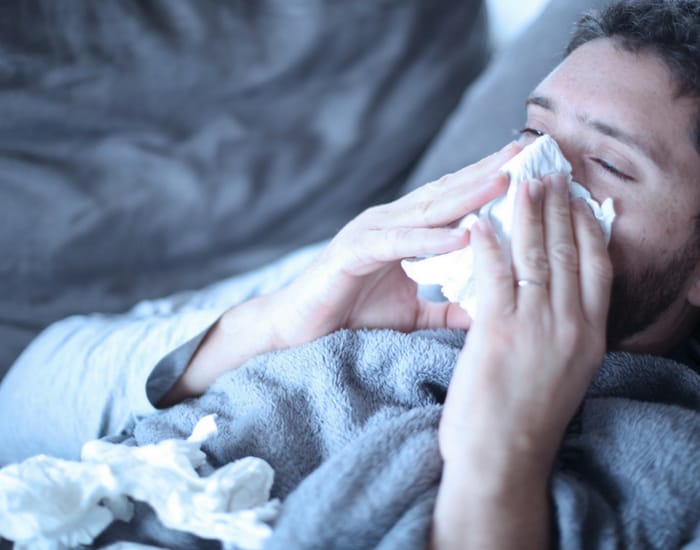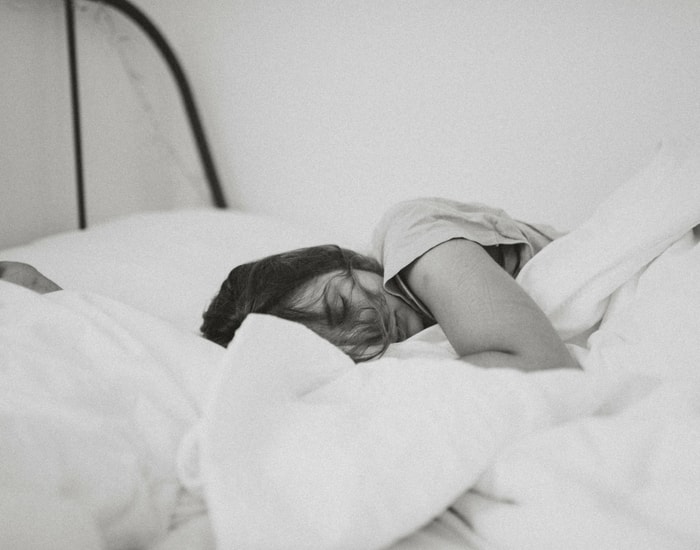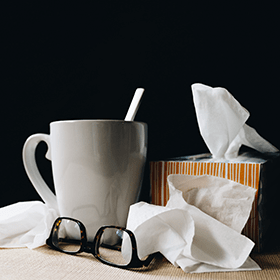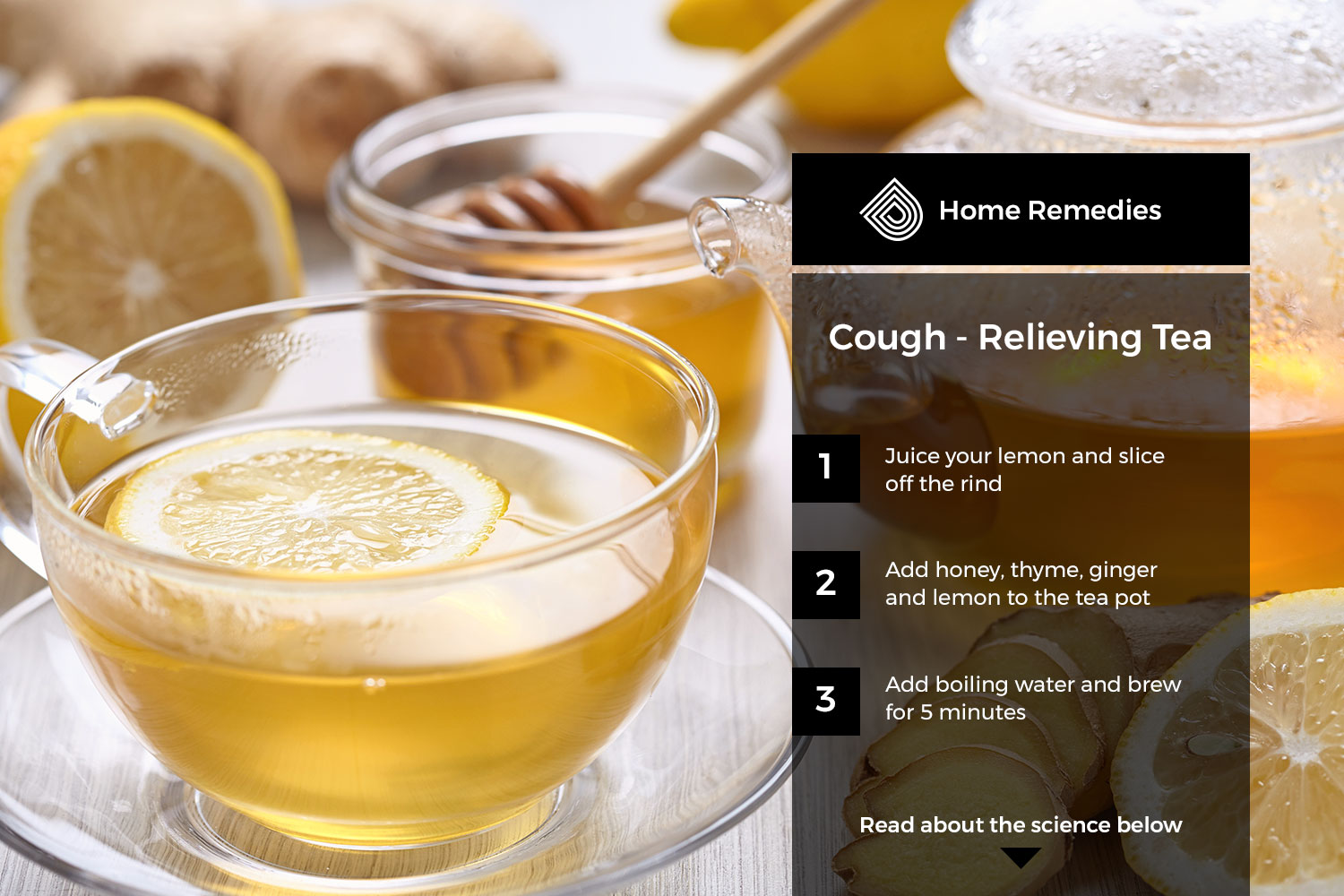By Dr Prudence Knight
How to sleep with a cold
When you've fallen ill with a common cold and you're feeling sick, getting a good night's sleep is key to helping you get better. But sometimes, it's easier said than done!
Suffering from a runny nose, sore throat and dry cough can make it hard to fall asleep - and stay asleep once you've managed to drift off (after all, cold symptoms don't rest just because you are!). But sleep deprivation sometimes makes your recovery worse, so it's a good idea to try everything you can to help you doze off.

We've pulled together a list of easy at-home remedies you can use to help you get the sleep you need when you have a cold:
Things you can do before bed to help you sleep
How to stay asleep throughout the night
Before bed
1. Clear your airways using steam (from hot drinks, showers or baths)
The steam you breathe in when you're having a hot drink, or enjoying a hot shower or bath, has multiple benefits.
When you have a cold, mucus builds up in your respiratory tract and your nasal passages dry out. Steam clears the airways by loosening mucus, and providing some much needed moisture to the nasal passage. This may reduce coughing throughout the night.
2. Keep your drinks alcohol-free
You might think a big glass of wine could help you drift off - but stay away from the booze.
Not only should you be careful when mixing any medication with alcohol (always read the label), alcohol can give you a dry mouth. Combined with an already-sore throat, this isn't ideal for aiding sleep! Try a nice hot drink instead.
3. Use a nasal spray before bedtime
Nasal sprays can decongest your nasal passages - making it easier for you to breathe normally throughout the night. Check the label before you buy, though - some sprays contain stimulants that might disrupt your sleep, so look for one without.
4. Take some cold and flu medicine
Read the label on the medicine you're thinking of taking - does it focus on the symptoms you're experiencing? If not, talk to a doctor about your symptoms to check what medication you should be taking.
A lot of brands do daytime and nighttime versions of their medication, too - stick to the nighttime versions before bed to avoid an unwanted caffeine boost.
5. Set up a humidifier in your bedroom
One study stated that the humidity in your home, to sustain health and comfort, should be between 40-60%. But as cold season sets in, this can sometimes drop.
A humidifier should raise the levels in your house just enough to benefit your health - but make sure you keep it clean. It's easy for bacteria and mold to gather otherwise.
6. Drop some essential oils on your pillow
A lot of essential oils' vapours will help to de-congest your nasal passages. They can be a helpful at-home remedy to use before bed (with drops on your pillow, or breathing some in from a tissue or handkerchief, soothing your symptoms).
Be careful not to get broken or irritated skin in contact with undiluted essential oils, as it can cause a burning sensation.
 nutritionist Will Hawkins recently explored the health benefits of honey - and soothing sore throats and suppressing coughs are two of them! Drizzle some honey into a mug of hot water with lemon before bed and you'll benefit from both it and the steam we mentioned earlier.
nutritionist Will Hawkins recently explored the health benefits of honey - and soothing sore throats and suppressing coughs are two of them! Drizzle some honey into a mug of hot water with lemon before bed and you'll benefit from both it and the steam we mentioned earlier.
During the night
8. Use an extra pillow to prop yourself up
Elevating your upper body whilst you sleep will relieve the effects of sinus pressure and the natural swelling that occurs when you are flat during sleep. It may also reduce post-nasal drip. This will improve your sore throat (because you can breathe through your nose) and reduce the likelihood of your coughing waking you up.
For this to work, you head needs to be higher than your body - so grab an extra pillow or two and make sure you're comfortable!
9. Make sure you're sleeping at a comfortable room temperature
Public Health England advise regulating your house's minimum temperature to 18 degrees celsius in order to stay as healthy as we can.

Snoring has become a problem as your cold has developed, a nasal strip will help with this, too.
If your cold symptoms persist or get worse, see a GP to discuss how you can start feeling better.
Most popular

Early Signs of a Cold: What You Can Do
Related articles

Homemade Cough-relieving Tea - Home Remedies

